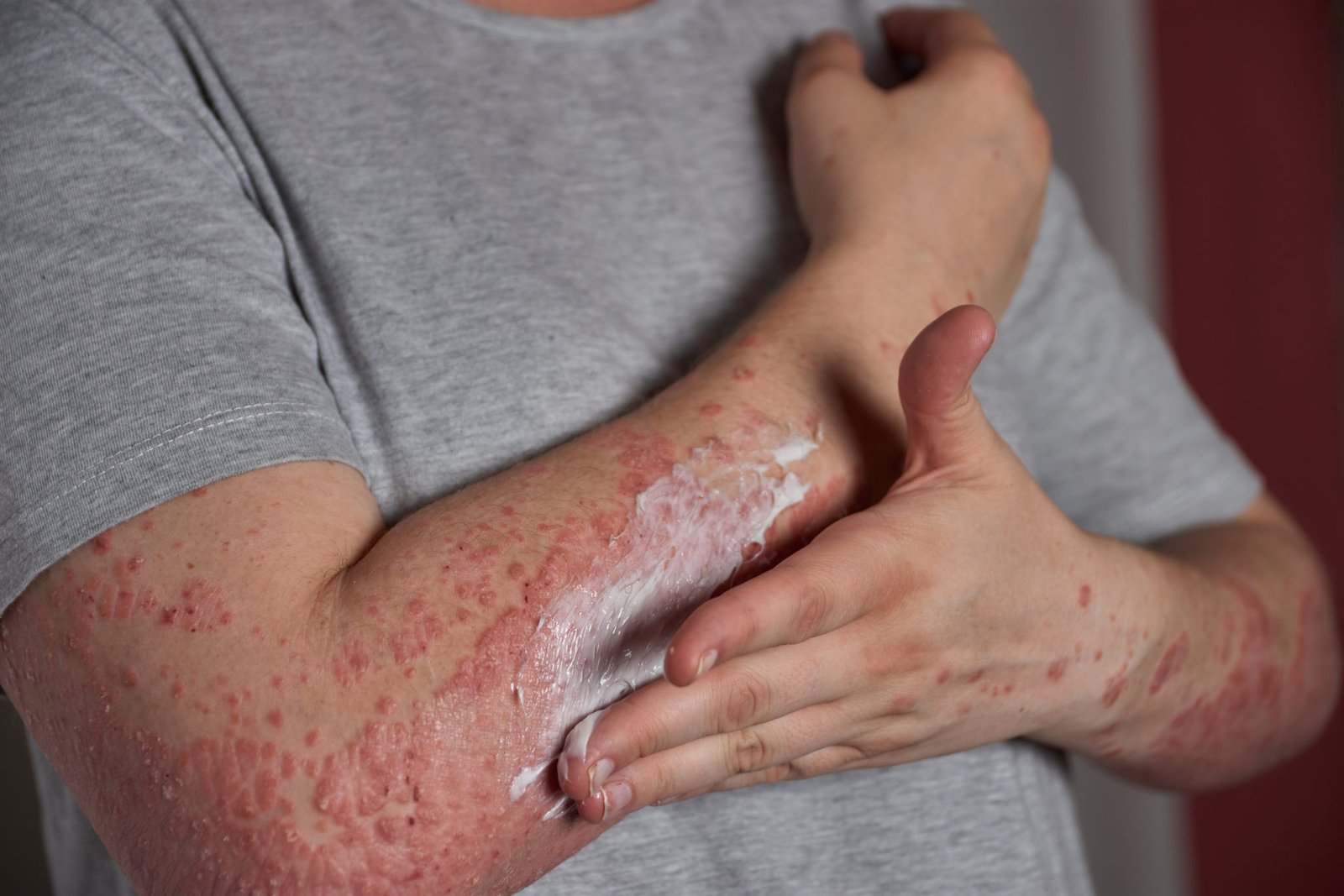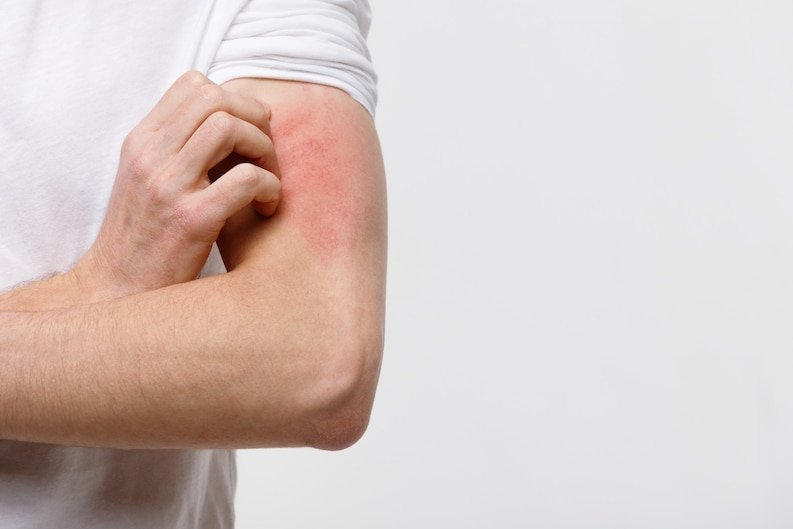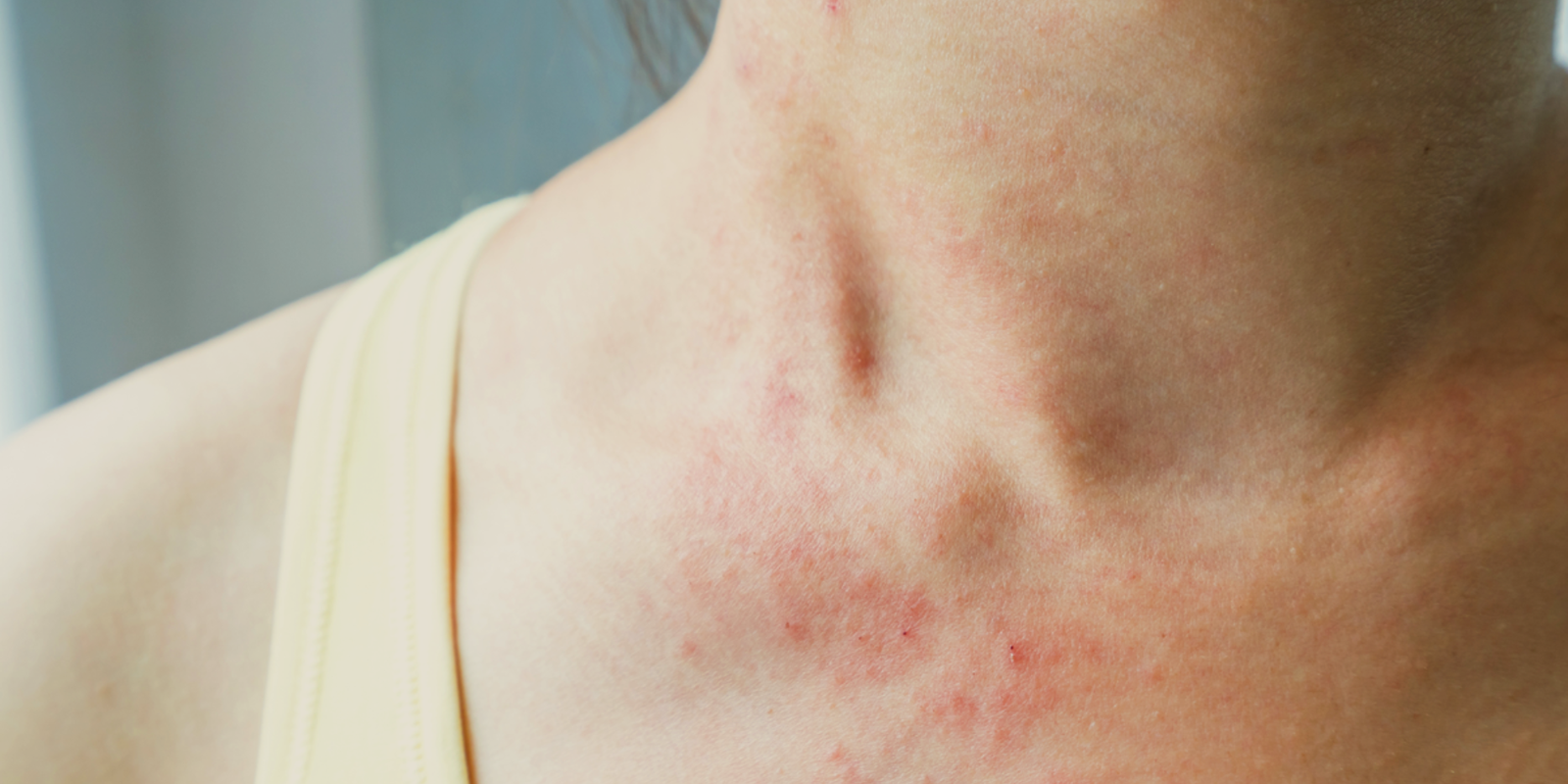Discover the Beauty Within
Details of the treatment

Detail 01
Hives Treatment is one of the most common allergic skin conditions that may affect anyone in the event of exposure to an allergen, which causes a skin condition that may be localized or may be generalized throughout the body, and in some cases of serious allergies, it may cause very serious cases of allergy that need to be treated. Ambulance interventions.
Detail 02
It is the appearance of bumps on the skin and elevations in the skin due to angioedema occurring under the epidermis, which is due to the exposure of the body to an allergen, which in turn interacts with the body and allows mast cells in the body to release their contents, which leads to vasodilatation and generalized edema in the body, which may develop into spasm Bronchial and laryngeal edema, and then the condition is serious and needs emergency intervention.Feel Your Best
Treatment Details
Diagnosis of cutaneous Hives
For doctors at the Excellage Clinic, the diagnosis of skin Hives often clinical, that is, it depends on the skin appearance of redness and elevation of the skin to form what is called blisters, and severe skin itching is one of the most prominent symptoms that affect people suffering from Hives.
Hives treatment
The treatment of cutaneous Hives depends on two stages, the first includes treatment of the condition after its occurrence and treatment of the apparent symptoms, while the second is home preventive treatment, which depends on the prevention of exposure to potential allergens and before the occurrence of episodes of cutaneous Hives, where the patient has a history of allergy.
- Avoid skin allergens such as certain foods, medicines, pollen, pet dander, latex, and insect stings.
- When you feel the symptoms, you can use anti-itch medications that are available without prescriptions, such as oral antihistamines
- Cold towels can be placed on the area that suffers from redness, as the cold helps relieve itching and redness.
- Wearing cotton clothes that are not rough, tight, or woolen, that is, they are not itchy.
- Sunscreen has a role in alleviating itching, flaring and associated redness.
Pharmacological treatment of Hives and angioedema
In Excellage Clinic, we may recommend drug treatment if the condition is moderate to severe, and it is also possible to resort to drug therapy to control mild symptoms, including:
- Anti-pruritic drugs, the most important of which are antihistamines
- Medications that suppress the immune system.
- Anti-hereditary angioedema medications
- Anti-inflammatory medications, especially for severe hives or severe angioedema, doctors may prescribe a short course of an oral corticosteroid medication – such as prednisone – to reduce swelling, inflammation and itching.
FAQ
Here are some questions and answers that will help you know
What is the treatment of acute and emergency Hives?
As we mentioned, some cases of Hives may be rapidly accelerating and life-threatening, so in emergency cases, intramuscular adrenaline can be used, and in the event of repeated cases, the person must carry the so-called adrenaline pen that is ready for self-injection.
When does peeling occur on sunburned skin?
The sunburned skin may begin to peel off after a number of days following the injury. Therefore, it is necessary to constantly moisturize the affected area and work to protect it from the sun intensely, by wearing sunscreen, in addition to the use of restorative creams.
What are the symptoms of Hives?
A rash and intense itching are often the most prominent symptoms, but you may also feel burning or stinging, and sometimes, the bruises unite to form larger areas called plaques.
What are the types of Hives?
- Acute Hives, which is an allergic condition that lasts less than 6 weeks.
- Chronic Hives, which is the condition in which the sensitivity continues at least twice a week, for more than 6 weeks
Is there a relationship between seasonal allergies or food allergies with Hives?
Yes, many studies have found that people with asthma, allergic rhinitis or atopic rhinitis, or who are predisposed to food allergies, are associated with more frequent hives.
Our Doctors






